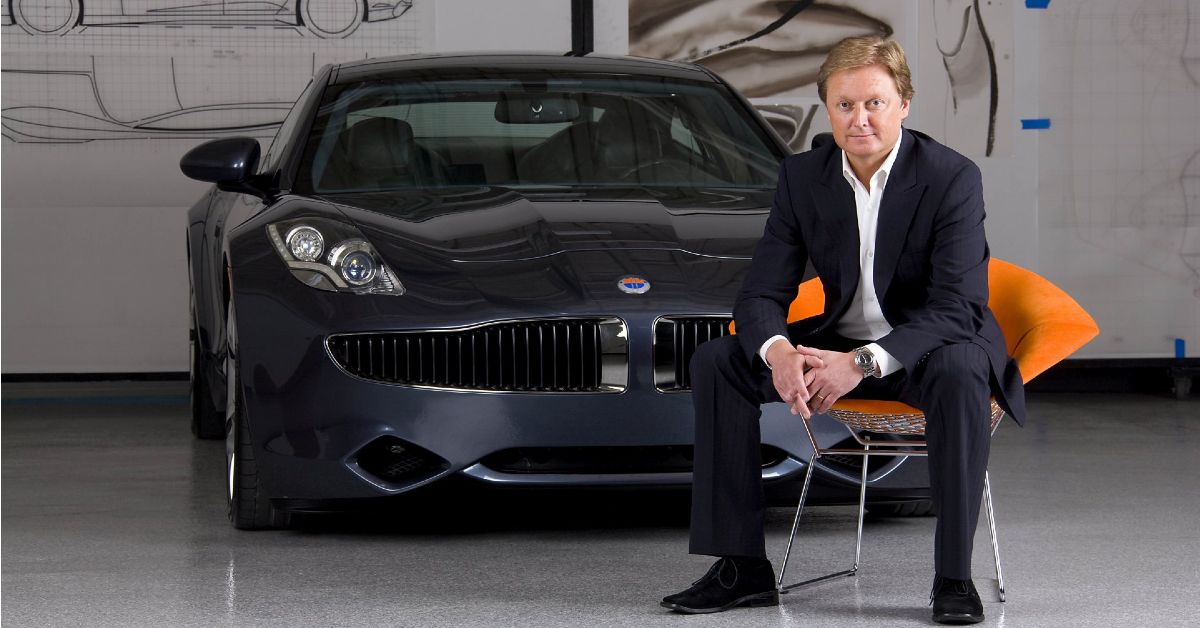The electric vehicle (EV) industry is a battlefield, littered with fallen dreams and ambitious ventures that couldn’t navigate the treacherous landscape. The latest casualty appears to be Fisker Inc., a company founded by renowned designer Henrik Fisker. In a surprising move, Fisker and his wife, Geeta Gupta-Fisker, who serves as the company’s COO, have slashed their salaries to a symbolic $1 annually in a gesture of solidarity with the company and its employees facing an uncertain future.
A Dreamt Electric Future: The Rise and Fall of Fisker Inc.
Fisker Inc. wasn’t born under a bad star. Here’s a look at its journey:
- A Renowned Designer at the Helm: Henrik Fisker is a household name in the automotive design world. He penned iconic vehicles like the BMW Z8 and the Aston Martin DB9, establishing a reputation for innovation and elegance.
- The Fisker Karma: A Luxurious Beginning: Fisker Inc. burst onto the scene in 2007 with the Karma, a plug-in hybrid luxury sedan praised for its stunning design and cutting-edge technology.
- Battery Blues and a Rocky Road: Production issues and battery problems plagued the Karma, leading to a recall and ultimately the company’s first brush with bankruptcy in 2013.

Despite its initial promise, Fisker Inc. struggled to gain a foothold in the competitive EV market.
A Second Attempt: The Ocean SUV and Financial Woes
Fisker Inc. wasn’t deterred by its first setback. Here’s how they tried to make a comeback:
- The Ocean SUV: A Bold New Vision: In 2016, Fisker Inc. unveiled the Ocean, a sleek and futuristic electric SUV designed to compete with established players like Tesla.
- Pre-Order Hype and Ambitious Plans: The Ocean generated significant pre-order interest, with Fisker aiming to begin production in 2022.
- Financial Hurdles and Missed Deadlines: Unfortunately, Fisker Inc. faced financial difficulties, delaying production and raising doubts about the company’s ability to deliver on its promises.
The dream of the Ocean SUV began to fade as Fisker Inc. grappled with financial constraints.
A Symbolic Gesture: Salary Cuts and Employee Solidarity
In a recent filing with the bankruptcy court, a surprising detail emerged:
- Leading by Example: Henrik Fisker and Geeta Gupta-Fisker slashed their salaries to a symbolic $1 annually. This move signifies their commitment to the company and a willingness to share the financial burden during this difficult time.
- Employee Concerns and Uncertain Future: The salary cuts come amidst concerns from employees regarding potential layoffs and severance packages as the company navigates the bankruptcy process.
- A Shared Sacrifice for an Uncertain Future: While the salary cuts are a symbolic gesture, they highlight the dedication of the Fisker leadership and the shared challenges faced by the company and its workforce.
This move by the Fisker leadership team has sparked discussions about leadership responsibility and the human cost of financial struggles in the competitive EV industry.
Navigating the Electric Maze: Challenges of the EV Market
The electric vehicle industry holds immense promise, but it’s not without its challenges:
- A Crowded Playing Field: Established automakers like Tesla and Volkswagen Group have a significant head start in the EV race, making it difficult for newcomers to gain traction.
- The Battery Conundrum: Battery technology remains a crucial factor in EV success. Range anxiety and charging infrastructure limitations still pose hurdles for widespread adoption.
- Financial Pressures and Sustainability: Building and launching new EVs requires substantial capital investment. Securing funding and achieving profitability in a competitive market is a significant challenge for startup EV companies.
Fisker Inc.’s situation reflects some of the broader challenges faced by the EV industry, highlighting the need for innovation, strategic partnerships, and a robust financial backing for long-term success.
















Add Comment